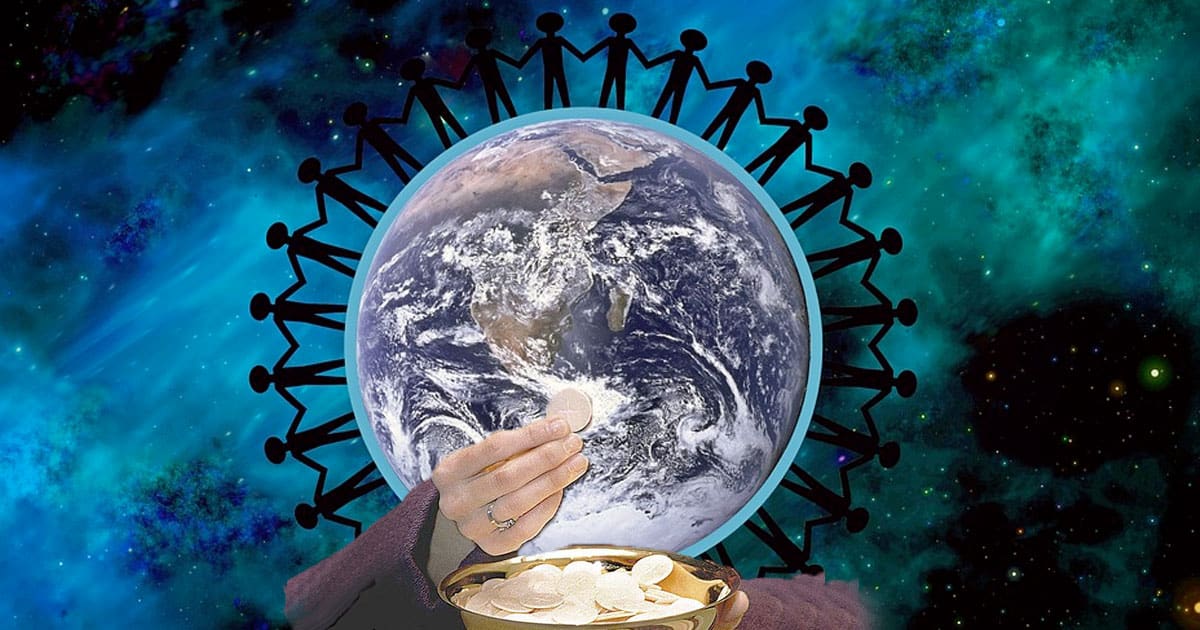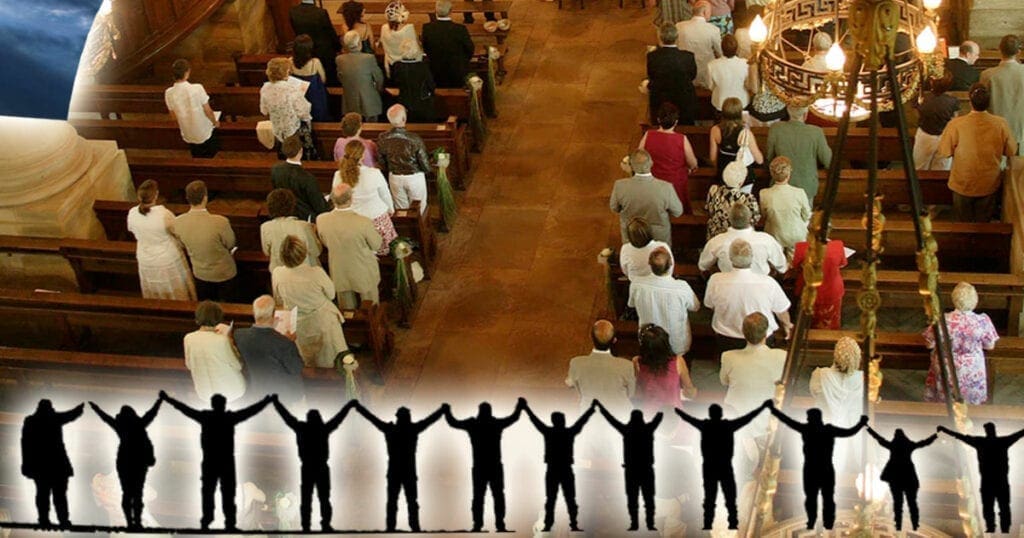Does Eucharist Call For Confronting Sinful Structures?
Does Eucharist call for confronting sinful structures?
To some, the question may sound strange, especially when we think of the Eucharist as the sacrament of unity. But that is not the way all recent Popes and the United States Bishops see it.
St. John Paul II …
Lived in this way, not only the Sunday Eucharist but the whole of Sunday becomes a great school of charity, justice and peace. The presence of the Risen Lord in the midst of his people becomes an undertaking of solidarity, a compelling force for inner renewal, an inspiration to change the structures of sin in which individuals, communities and at times entire peoples are entangled.
Pope Benedict XVI…
In the memorial of his sacrifice, the Lord strengthens our fraternal communion and, in a particular way, urges those in conflict to hasten their reconciliation by opening themselves to dialogue and a commitment to justice. Certainly, the restoration of justice, reconciliation and forgiveness are the conditions for building true peace. (243) The recognition of this fact leads to a determination to transform unjust structures and to restore respect for the dignity of all men and women, created in God’s image and likeness. Through the concrete fulfillment of this responsibility, the Eucharist becomes in life what it signifies in its celebration.
In discussing the social responsibility of all Christians, the Synod Fathers noted that the sacrifice of Christ is a mystery of liberation that constantly and insistently challenges us. I therefore urge all the faithful to be true promoters of peace and justice: “All who partake of the Eucharist must commit themselves to peacemaking in our world scarred by violence and war, and today in particular, by terrorism, economic corruption and sexual exploitation.” (245) All these problems give rise in turn to others no less troubling and disheartening. We know that there can be no superficial solutions to these issues. Precisely because of the mystery we celebrate, we must denounce situations contrary to human dignity, since Christ shed his blood for all, and at the same time affirm the inestimable value of each individual person. (Pope Benedict XVI, Sacramentum Caritatis [Sacrament of Charity], no. 89)
United States Bishops
As we meditate on the Eucharist, we experience Christ’s love for us—and for others. In the depth of prayer, we become so moved and sensitized to his love for those who suffer that the words of St. Augustine become a reality for us: “The pain of one, even the smallest member, is the pain of all” (Sermo Denis).
St. John Chrysostom’s words in the fourth century become real for us as we reflect on Matthew 25:31-46: Do you wish to honor the Body of Christ? Do not ignore him when he is naked. Eucharist Body of Christ, Broken for the World.
Pope Francis picks up the theme calling for a “eucharistic culture”
In the audience to the members of the Pontifical Council for International Eucharistic Congresses, Pope Francis urges the next Eucharistic Congress in Budapest (in 2020) to be a witness in modern and secularized society, where faith has become marginal. “Spreading a “Eucharistic culture” of “communion”, “service”, “mercy” in a Europe sick with indifference”.
The celebration of the Eucharist thus becomes a cradle of attitudes that generate a Eucharistic culture, for it impels us to express in our way of life and our thinking the grace of Christ who gave of himself to the full.
The baptized thus spread the seeds of a Eucharistic culture by becoming servants of the poor, not in the name of an ideology but of the Gospel itself, which becomes a rule of life for individuals and communities. We see this in the constant witness borne by so many saints of charity, men and women alike.
A Eucharistic culture? What might that be? Culture is a word for the ‘way of life’ of groups of people, meaning the way they do things. Pope Francis characterizes a Eucharistic culture as a culture of communion, service, and mercy.
When the world looks at us do they see a people characterized by communion, service, and mercy?
Going beyond personal piety
Can anyone read these authoritative statements without hearing the challenge to recognize the Eucharist as more than our personal relationship with Jesus? Pope John Paul II speaks bluntly…
Far from being an escape, the Christian Sunday is a “prophecy” inscribed on time itself, a prophecy obliging the faithful to follow in the footsteps of the One who came “to preach good news to the poor, to proclaim release to captives and new sight to the blind, to set at liberty those who are oppressed, and to proclaim the acceptable year of the Lord” (Lk 4:18-19). In the Sunday commemoration of Easter, believers learn from Christ, and remembering his promise: “I leave you peace, my peace I give you” (Jn 14:27), they become in their turn builders of peace. (Apostolic Letter Day of the Lord)
We can not retreat into our own world and pull the covers over our heads. We must turn to the Eucharist to find strength for the journey.
For honest self-reflection…
- Am I surprised at this consistent papal teaching?
- If I am not surprised, what have I done to develop a eucharistic mind-set and culture?
- With whom can I collaborate in confronting these structures manifested in secular culture?








0 Comments